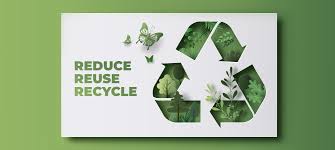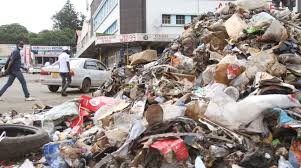-According to government experts, there is a great need to go from a linear to a circular economic model in order to address the difficulties the globe is currently facing.

HARARE (CZ) – The transformation from a linear to a circular economic model of waste management will be the main topic of the 2023 edition of the Africa Green, Waste, and Energy Expo & Summit, according to the event’s organizers. Reporting from Zimbabwe is John Cassim.
The Harare International Conference Centre (HICC) will host the Green Expo and Summit from July 26–28, 2023, with the theme “Just Transition—Remodelling Systems.”
Methane gas, a potent greenhouse gas, is frequently released as a result of a linear economic model, such as the growing of cows for beef.
However, changing the way cows are fed results in fewer methane gas emissions, making beef production more eco-efficient.
On the other hand, a circular economic model follows the 3R approach, whereby waste or residue is reduced, reused, and recycled.
The Green Expo and Summit are coming against the backdrop of the introduction of the Carbon Trading Framework two months ago and the Voluntary Carbon Credits Conference held in Victoria Falls recently.
“In light of the realisation of the diversity of the detects of the circular economy, the 2023 Edition of the Green Expo and Summit will have several side events that will be led by different key sector players in order to meaningfully deliberate on the following key topics: The Future of Energy, Climate Smart Agriculture, The Future of Work, Climate Promise, Sustainable Cities, among others,” said Ambassador Raphael Tayerera Faranisi, Secretary of Environment, Climate, Tourism, and Hospitality Industry.
20 countries will be represented at the Summit that will be hosted by the government of Zimbabwe in partnership with the Zimbabwe Sunshine Group, Action Aid, UNICEF, UNDP, the Diplomatic Business Network, and many more.
In addressing the existential issues the world is facing today, caused by unsustainable production and consumption patterns, there is a huge demand to transition from a linear to a circular economic model.
Meanwhile, the Zimbabwean government is hoping it will be able to remodel systems in an all-inclusive and just manner.
“The Green Expo and Summit is coming at an opportune time as the Government of Zimbabwe recently launched its long-awaited Carbon Trading Framework, which seeks to incentivise Climate action and is expected to stimulate investments and meaningful action by sector players,” said Ambassador Faranisi.
“More importantly, it will also benefit local actors and the country at large through its carefully structured revenue sharing model.”
“It is of paramount importance that I highlight that the government of Zimbabwe has also progressed very well in strengthening the institutional and technical capacities of sector players to meet the enhanced transparency requirements in the Paris Agreement through the Capacity-Building Initiative for Transparency (CBIT) and in taking stock of the progress made in the implementation of the Nationally Determined Contributions,” he added.

Meanwhile, the key driver of the desired sustainable economic model (the circular economy) is said to be the transition to low-carbon forms of energy generation, storage, mobility, and industrial production.
This is creating new demand for what are considered the minerals of the future: platinum, lithium, copper, and vanadium, among others, of which Zimbabwe is endowed with them in abundance.
